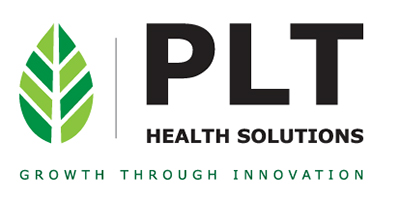PLT Health Solutions has partnered with Botanical Liaisons to undertake a sustainability audit of Indian Boswellia serrata gum resin harvesting and collection practices related to its use in a wide range of nutritional supplement applications.
The audit measured sustainability through in-country interviews of field workers, resin consolidators, ingredient manufacturers and government officials.
The third-party audit was based on a broad range of environmental, cultural and economic parameters and concluded: "It is clear from the information collected from the stakeholders that [sustainability] is supported. Boswellia serrata has several sustainability advantages that prevents over-harvesting of PLT-sourced Boswellia compared to other sources and species of Boswellia."
p>According to Seth Flowerman, President & CEO of PLT Health Solutions, the formal evaluation of the sustainability of Boswellia serrata trees was motivated by the plant's inclusion in multiple innovative products within PLT Health Solutions' portfolio and a family relationship with the region in which these trees are grown that stretches back decades.There appears to be confusion with regard to the status of various species of Boswellia and potential for overharvesting
"My family and PLT have been working with partners collecting Boswellia serrata for nearly 40 years," Flowerman said. "Every year, we are finding new and exciting health-promoting uses for Boswellia serrata that have the ability to help people live happier, healthier lives, and today, extracts of Boswellia serrata form the basis of some of the leading products at PLT. We have a responsibility to be good stewards of these resources and to support the communities whose livelihoods depend on it."
According to Trish Flaster, Executive Director of Botanical Liaisons, who led the review team, there appears to be confusion with regard to the status of various species of Boswellia and potential for overharvesting.
"Much of the reviewed literature focuses on other Boswellia species, from Africa and the Middle East, which are related to essential oil and fragrance supply, rather than the Indian sourced species with beneficial health benefits typically used for dietary supplement or foods," Flaster said.
Flaster pointed out that there are a number of factors that promote sustainability of the Boswellia serrata species in India. "These advantages include the economic incentives, inheritance system for trees and sense of ownership, the long lifespan of trees, the tremendous environmental care taken by the collectors, the natural habitat in Madhya Pradesh that is largely undeveloped and native, as well as the minimum pricing restrictions, inventories, and training programs supported by industry and government," she said.
A highly valuable natural ingredient source
Often referred to as frankincense, Boswellia serrata resin is the only species of this plant produced in India, mainly from the states of Madhya Pradesh, Andhra Pradesh, Gujarat, and Jharkhand. By contrast other materials referred to as frankincense include the species Boswellia papyrifera and Boswellia sacra (the source of most liturgical frankincense). These are native to the Arabian Peninsula (Oman, Yemen) and horn of Africa (Somalia). Boswellia serrata's medicinal properties make it an important ingredient in traditional Unani and Ayurvedic herbal remedies, and a key source of boswellic acids in western pharmaceutical biomedicine, where they have been investigated to help manage inflammation and for applications in products designed to support joint and muscle health, respiratory health and cardiovascular health.
The Indian government, through its Forestry Service, keeps tabs on this important natural resource. Field inventories are conducted regularly to measure plant populations, they train field associates and set prices and they are confident that "there is an abundance of Boswellia forests distributed among sixteen states across India. Therefore, there is no perceived threat for the Boswellia population."
Much of the reviewed literature focuses on other Boswellia species, from Africa and the Middle East
According to Flowerman, the third-party audit conducted by Botanical Liaisons on the Boswellia serrata supply chain is in line with the company's PLT360 transparency and trust building initiative that was introduced in 2015. "PLT360 is a business-wide commitment by PLT Health Solutions to developing transparent ingredient solutions that our customers can confidently stand behind - knowing that these ingredients are safe, of high quality, efficacious and harvested and manufactured in a sustainable and ethical way," he said. "Going beyond traditional quality control programs, PLT360 examines every aspect of an ingredient that we supply to deliver a best-in-class solution in a program that tracks Ingredient Integrity, Quality, Sustainability and Efficacy."
As an addition to the company's Sustainability platform, in 2021, PLT formalised its People+Planet Initiative, which, among other causes, supports the communities in India engaged in Boswellia serrata harvesting.
The Initiative builds on long-term philanthropic efforts undertaken by the company with both environmental and humanitarian purposes in alignment with the United Nation's Sustainable Development Goals (SDG). On the 'people' side, PLT supports groups dedicated to UN Zero Hunger and Good Health and Well-Being Sustainable Development Goals. It also engages with Literacy and Math programs supporting the Quality of Education SDG.
On the 'planet' side, PLT is focused on Climate Action, Life Below Water, and Life on Land SDGs, supporting multiple organisations that promote wellness for the planet. Goals for the Initiative include providing 1 million meals to needy families, helping to bring new educational opportunities to more than 1 million children and helping provide essential vitamins and minerals to more than 1 million women and children in low-resource settings by 2030.

